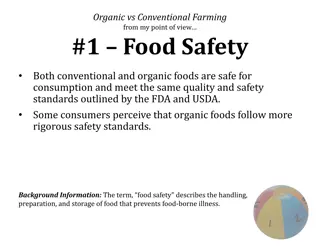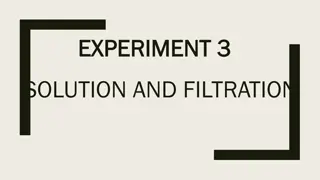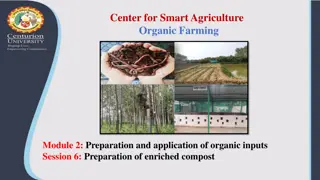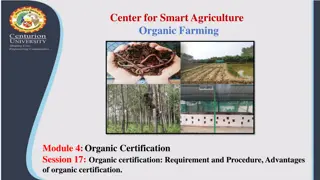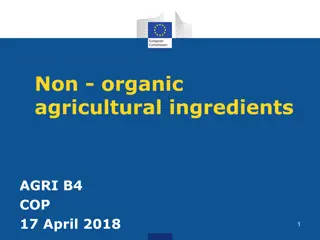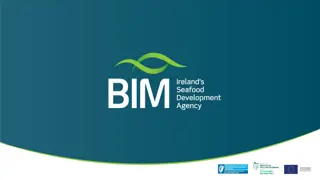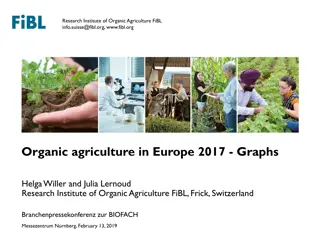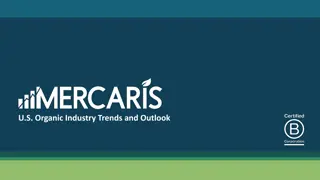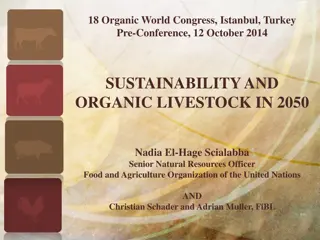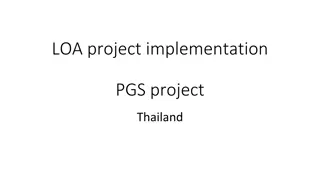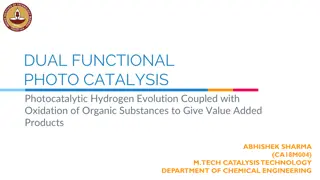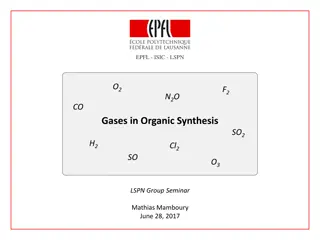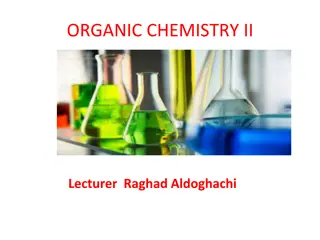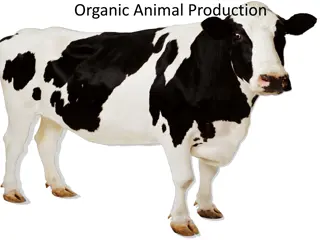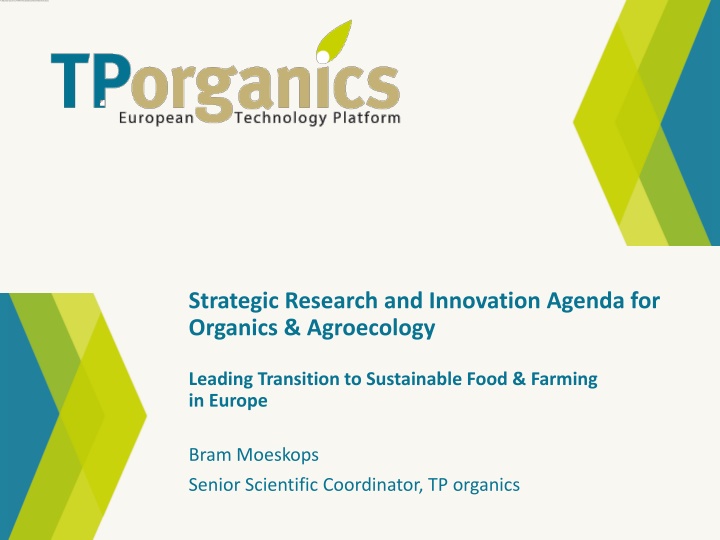
Leading Transition to Sustainable Food & Farming in Europe
This strategic research and innovation agenda focuses on advancing organics and agroecology to drive the transition towards sustainable food and farming practices in Europe. Key priorities include circular agricultural production, boosting organic breeding, addressing genetic engineering implications, and enhancing organic aquaculture sustainability. Additionally, the agenda emphasizes climate-resilient farming systems, ecological approaches, and the redesign of food and agricultural policies at the EU level to promote a farm-to-fork strategy. Research areas cover diverse topics such as genetic resources autonomy, food safety in organic value chains, and digital solutions for transparency.
Download Presentation

Please find below an Image/Link to download the presentation.
The content on the website is provided AS IS for your information and personal use only. It may not be sold, licensed, or shared on other websites without obtaining consent from the author. If you encounter any issues during the download, it is possible that the publisher has removed the file from their server.
You are allowed to download the files provided on this website for personal or commercial use, subject to the condition that they are used lawfully. All files are the property of their respective owners.
The content on the website is provided AS IS for your information and personal use only. It may not be sold, licensed, or shared on other websites without obtaining consent from the author.
E N D
Presentation Transcript
Strategic Research and Innovation Agenda for Organics & Agroecology Leading Transition to Sustainable Food & Farming in Europe Bram Moeskops Senior Scientific Coordinator, TP organics
Drafting process 3 workshops 4 29 topics 33 authors themes
Moving organics forward Priorities for the organic sector new Organic Regulation (EC 848/2018) results in new research priorities and support in implementing the new rules Research should focus on: 1. Organic inputs and the circular economy: increasing the circularity of agricultural production 2. European Market Observatory for organic farming 3. Boosting organic breeding and the production of organic cultivars 4. New genetic engineering technologies and their implications for organic farming 5. Dealing with unwanted substances residues in organic products 6. The implementation of the new organic trade system 7. Increasing the sustainability of organic aquaculture
Climate resilient, diversified farming systems based on ecological approaches Farming practices that intentionally include functional biodiversity in space and time in order to maintain ecosystem services 12 research topics focusing on four sub-themes: 1. Diverse and healthy crops and livestock for multi-purpose production 2. Autonomy in genetic resources, 3. Ensuring production diversity in specialised systems, 4. Climate change adaptation and mitigation.
Re-design of food and agricultural policies from local to EU level To achieve the transformation of European agri-food sector a farm-to-fork strategy along the whole value chain is needed. Research should focus on: 1. impact assessment of the CAP regime post 2020 and impact of organic support policies 2. policies for to the delivery of public goods and sustainability assessment 3. local sustainable food systems, green public procurement & job creation 4. contribution of organics to food security and sustainable management of natural resources on a global level 5. digital Knowledge and Information Systems for organic food & farming
Sustainable value chains for better food systems Food processing, distribution and consumption, including sustainable diets, must be better integrated in an organic food systems approach Research should help organic sector to operate in each step of the food chain in accordance with organic principles. Research should focus on 1. Minimal processing 2. Reducing food and packaging waste 3. Sustainable and healthy organic diets 4. Food safety in the organic value chain 5. Digital solutions for transparency across the value chains
Recommendations for Policy-Makers Organic sector has led the way for providing food with minimal environmental footprint, where the highest quality is achieved through fair production and careful processing. Organic sector needs to develop further , inspiring and leading the transformation of the wider food system. R&I in the organic sector is crucial to improve our future food systems CORE Organic is a crucial partnership to build capacity in the organic sector at all levels
Available online: tporganics.eu/publications/ Summary & Full versions



